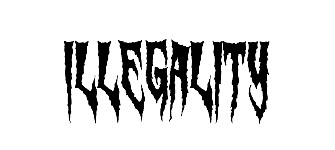Kim v Choi 2020 BCCA 98 is one of the few cases to deal with whether an illegal act can still allow a valid court action through equity, with the court holding that that a claim for restitution based on unjust enrichment that derived from an illegal contract will not be barred by illegality, unless the restitution would defeat or frustrate the policy underlying “ illegality”.
The plaintiff had wanted to immigrate to Canada with her young children and purchased an unprofitable restaurant from the defendant. The plaintiff paid $380,000 to the defendant for what was supposedly inventory and operating costs, and brought action against the defendant based on a finding of unjust enrichment, and was awarded 300,000 Korean won.
The defendant had shut down the restaurant and ceased his residency sponsorship of the plaintiff and her children. The defendant appealed and argued illegality of the immigration scheme but the appeal was dismissed.
A claim for restitution based on unjust enrichment that derived from an illegal contract will not be barred by illegality, unless the restitution would defeat or frustrate the policy underlying illegality.
In this case, the restitution would not permit the plaintiff to profit from the immigration scheme, but would unwind that part of that transaction, which would otherwise result in unjust enrichment of the defendant.
Illegality
The doctrine of illegality was expressed in the Latin phrase ex turpi causa non oritur actio that was founded on public policy that one should not profit from an illegal contract or tort.
“No court will lend its seed to a man who found his action upon in a moral or an illegal act” stated the court in Holman v . Johnson (1775) 98 E.R. 1120.
The rule in Holman was intended to be a flexible one, but ossified into an absolute rule that if the contract was either expressly or impliedly prohibited by statute, it was void ab initio.
The modern approach to illegality, however recognizes the unfairness that could result from strict adherence to the classical model, and develop means of providing relief in appropriate situations.
The modern approach stated in the Choi case is that contractual or statutory illegality does not create an absolute bar to equitable relief, including a claimant quantum meruit, where recovery on that basis would not be contrary to public interest.
The court held that an absolute bar on quantum meruit recovery creates an injustice that is unacceptable when considered in light of the public policy informing the statutory prohibition against champertous agreements the policy is to protect the administration of justice from abuse.
Tort Claims
With respect to tort claims for compensatory damages, in Hall v Hevert (1993) 2 SCR 159 the Supreme Court of Canada stated: A plaintiff’s immoral or illegal conduct will act as a bar to recovery only in limited circumstances.
The court’s power to invoke the doctrine lies in its duty to protect the integrity of the legal system, and is exercisable only where such concern is in issue. The concern is in issue where a damage award in a civil suit would, in effect, allow a person to profit from illegal or wrongful conduct, or would permit an evasion or rebate of a penalty prescribed by the criminal law.
The underlying idea is that the law refuses to give by its right hand what it takes away with its left. It follows that, as a general rule, the ex turpi causa principle will not operate in tort to deny damages for personal injury, since tort suits will generally be based on a claim for compensation, and will not seek damages as profit for illegal or immoral acts.”

